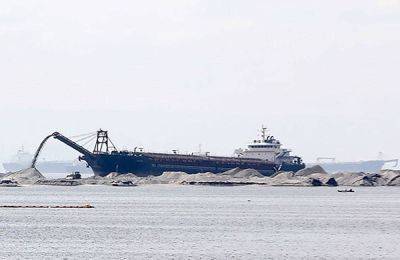Planned Manila Bay reclamation projects seen to generate P432b
THE 14 approved Manila Bay reclamation projects which were put on hold over a suspension order by President Marcos can generate as much as P432 billion in national land taxes, include value added tax, capital gains tax, and documentary stamp taxes, according to Albay Rep. Joey Sarte Salceda.
Salceda is chairman of the House committee on ways and means which is reviewing proposed reclamation projects.
He described the President’s order as a “great opportunity to get reclamation right and actually gain its promised benefits.”
Salceda estimated that at least P23 trillion in land sales will come out of the planned reclamation projects off Manila Bay, adding the amount is “enough to retire the country’s debt.”
Salceda agreed, however, that reclamation as a revenue source for the national government has not yet been maximized.
“It’s a great way to raise revenues without raising taxes. We already considered funding the military pension system out of reclamation rights during (the past administrations) But the idea was ultimately shelved because most reclamation projects are local government projects,” Salceda added.
He stressed that the P432 billion in tax revenues is a lost opportunity if the suspension of reclamation projects in Manila Bay will last for five years.
Last August, the government ordered the suspension of all 22 reclamation projects in Manila Bay pending a review of their compliance with environmental regulations.
According to Salceda, the reclamation project has been a “standard practice” in the largest cities in the world.
In particular, Salceda cited Tokyo with 20 percent of its bay reclaimed, while 22 percent of Singapore’s land area underwent reclamation where one-third of its reclaimed land was utilized for socialized housing projects.
He said 25 percent of developed land in Hong Kong has been reclaimed where 27 percent of its population resides in the area while 70 percent was used for business ventures.
“Reclamation is inevitable when developing large metropolitan cities bound by the sea, and Metro Manila is now the world’s most densely populated megacity. Reclamation is standard practice among the world’s largest and most successful







